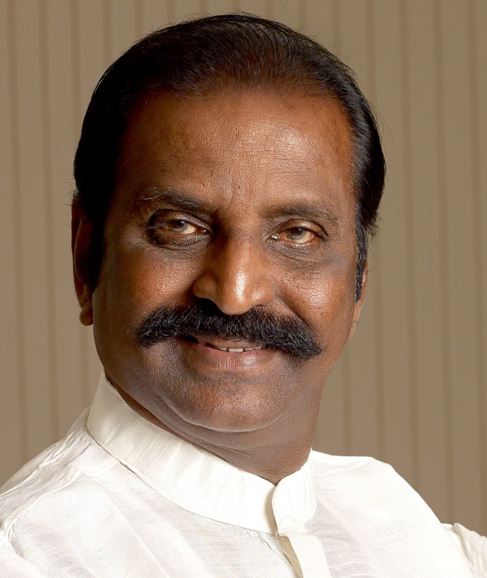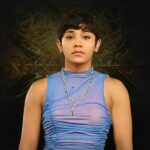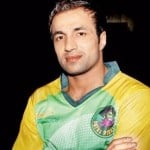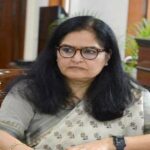Vairamuthu Height, Age, Wife, Children, Family, Biography
Quick Info→
Wife: Ponmani
Hometown: Theni, Tamil Nadu
Age: 72 Years
| Bio/Wiki | |
|---|---|
| Profession(s) | • Lyricist • Poet |
| Physical Stats | |
| Height (approx.) | 5' 8" (173 cm) |
| Weight (approx.) | 65 Kg (143 lbs) |
| Body Measurements (approx.) | - Chest: 40 Inches - Waist: 34 Inches - Biceps: 12 Inches |
| Eye Colour | Black |
| Hair Colour | Brown |
| Career | |
| Awards, Honours, Achievements | 1981-1982 • Tamil Nadu State Film Award for Best Lyricist – Vizhiyil Vizhundu and Kadhal Oviyam from Alaigal Oivathillai 1985 • National Film Award for Best Lyrics – All songs from Muthal Mariyathai 1990 • Kalaimamani Award – Tamil Nadu State Government • Paavendhar Award – Tamil Nadu State Government 1992 • National Film Award for Best Lyrics – Chinna Chinna Aasai from Roja 1994 • National Film Award for Best Lyrics – Poralae Ponnuthayi from Karuththamma • National Film Award for Best Lyrics – Uyirum Neeye from Pavithra 1995 • Tamil Nadu State Film Award for Best Lyricist – Poralae Ponnuthayi from Karuththamma 1996 • Tamil Nadu State Film Award for Best Lyricist – Oruvan Oruvan from Muthu; Kannaalanae from Bombay 1999 • National Film Award for Best Lyrics – Mudhal Murai Killipparthaein from Sangamam • S. P. Adithanar Literary Award – Best Tamil Novel for Thanneer Thesam 2000 • Tamil Nadu State Film Award for Best Lyricist – Mudhal Murai Killipparthaein from Sangamam 2002 • National Film Award for Best Lyrics – Oru Theivam Thantha Poovey from Kannathil Muthamittal 2003 • Padma Shri – Distinguished Services in Literature and Education • Sahitya Akademi Award – Best Literary Work for Kallikkaattu Ithihaasam 2005 • Tamil Nadu State Film Award for Best Lyricist – Oh Sukumari and Iyengaaru Veetu from Anniyan • Filmfare Award for Best Lyricist – Tamil – Oh Sukumari from Anniyan 2007 • Tamil Nadu State Film Award for Best Lyricist – All songs from Periyar • Honorary Doctorate – Tamil Nadu Open University 2008 • Honorary Doctorate – Madurai Kamaraj University 2009 • Sadhana Samman – Contribution to Indian literature (poetry, novels, lyrics) • Honorary Doctorate – Bharathiar University 2010 • National Film Award for Best Lyrics – Kallikkaattil Perandha Thaayae from Thenmerku Paruvakaatru • Vijay Award for Best Lyricist – Arima Arima from Enthiran; Kallikkaatil Pirandha Thaaye from Thenmerku Paruvakaatru 2011 • Filmfare Award for Best Lyricist – Tamil – Sara Sara from Vaagai Sooda Vaa • Vijay Award for Best Lyricist – Sara Sara from Vaagai Sooda Vaa 2013 • Ilakkiya Sinthanai Award – Best Tamil Novel for Moondram Ulaga Por • Tansri K.R. Somasundaram Literature Foundation Award – Best Novel in Tamil Literature for Moondram Ulaga Por 2014 • Padma Bhushan – Distinguished Services in Literature and Education 2015 • SIIMA Award for Best Lyricist – Tamil – Malargal Kettaen from O Kadhal Kanmani 2016 • National Film Award for Best Lyrics – Endha Pakkam from Dharma Durai • Filmfare Award for Best Lyricist – Tamil – Endha Pakkam from Dharma Durai 2017 • Filmfare Award for Best Lyricist – Tamil – Vaan from Kaatru Veliyidai 2018 • FICCI Book of the Year Award – Nākapani Vaṉkā Itihāsh (Hindi version of Kallikkaattu Ithihaasam) 2021 • O. N. V. Literary Award – Instituted by ONV Cultural Academy (Declined) |
| Personal Life | |
| Date of Birth | 13 July 1953 (Monday) |
| Age (as of 2025) | 72 Years |
| Birthplace | Mettoor village, Theni district, Tamil Nadu, India |
| Zodiac sign | Cancer |
| Nationality | Indian |
| Hometown | Theni, Tamil Nadu |
| College/University | Pachaiyappan College, Chennai |
| Food Habit | Non-vegetarian |
| Controversies | FIR over statement about Andal In January 2018, Vairamuthu delivered a speech about 7th century poet Andal at Srivilliputhur Andal Temple. He quoted an American scholar’s research saying Andal belonged to the Devadasi community and lived and died in Srirangam temple. BJP leader H. Raja criticized Vairamuthu’s statement about Andal and expressed opposition to his speech. Vairamuthu issued an apology stating his words were twisted and said he only intended to glorify Andal. Some Tamil writers said there was nothing controversial since Vairamuthu only quoted the scholar’s article. Videos featuring minor children from Nithyananda’s Ashram used abusive language while questioning Vairamuthu’s statement. This act of using children for such videos drew criticism from the public and was considered objectionable. A case was filed against Vairamuthu over the speech related to Andal. #MeToo Allegations In late 2018, during India’s #MeToo movement, singer Chinmayi Sripaada accused Vairamuthu of sexual harassment. Singer Bhuvana Seshan also accused Vairamuthu of sexual harassment during the same period. Journalist Sandhya Menon shared an anonymous woman’s allegations against Vairamuthu on Twitter. Hayma Malini Yugendran claimed a presenter at her TV channel workplace was harassed by Vairamuthu. Composer A. R. Reihana said she had heard about several women facing harassment from Vairamuthu in the past. Vairamuthu denied all allegations, said they were baseless, and stated he was ready for legal proceedings. Comments on Lord Ram Vairamuthu attended a literary program in Chennai on 12 August 2025, where he received an award named after poet Kambar. During his speech, Vairamuthu said, "After being separated from Sita, Ram lost his mind, not knowing what he was doing. Crimes committed in such a state are not considered crimes under IPC Section 84. Ram is fully acquitted, forgiven – making Ram a human being, and Kamban, God." Tamil Nadu Chief Minister MK Stalin and former Union Minister S Jagathrakshagan were present at the same event. Soon after the program, BJP leaders criticised his comments and said they hurt religious feelings. Tamil Nadu BJP president Nainar Nagendran questioned whether Chief Minister Stalin agreed with Vairamuthu’s statements. BJP spokesperson Narayanan Thirupathy described Vairamuthu using harsh words and said the comments were unacceptable. BJP officials also mentioned that Vairamuthu had earlier made remarks about Andal, which they said offended Hindu sentiments. People close to Vairamuthu said the controversy was created by twisting his words and presenting them wrongly. They said his speech was a literary explanation and not a political or religious statement. They added that he referred to the Ramayana episode where Ram killed Vaali from a hidden position. They explained that Vairamuthu used Ram’s mental state after losing Sita to clarify that part of the story. They said his intention was to highlight Kambar’s poetic skill and to present Ram as a human character. The incident triggered a new discussion on how literary works are interpreted during political debates. The issue also became significant because Tamil Nadu assembly elections were scheduled in 2026. |
| Social Media | • Twitter • Official Website |
| Relationships & More | |
| Marital Status | Married |
| Family | |
| Wife/Spouse | Ponmani (Tamil scholar and professor at Meenakshi College for Women) |
| Children | Son(s)- 2 • Madhan Karky • Kabilan |
| Parents | Father- Ramasamy Thevar Mother- Angammal |
Some Lesser Known Facts About Vairamuthu
- Vairamuthu was born to an agriculturalist Tamil family.
- In 1957, his family relocated to Vadugapatti in Theni district after the construction of the Vaigai Dam forced the evacuation of fourteen villages.
- During childhood, he engaged in agriculture along with academics and simultaneously developed an interest in Tamil language, literature and poetry.
- By age ten, he started writing poems, and at fourteen, he composed venba verses inspired by Thiruvalluvar’s Tirukkural.
- In the 1960s, he was influenced by the Dravidian movement and leaders like Periyar, Annadurai, Karunanidhi, Bharathi, Bharathidasan and Kannadasan.
- He became recognised as a student poet and orator during his school years, actively writing and presenting Tamil literary works.
- During undergraduate studies at Pachaiyappa’s College, Chennai, he published his first poetry anthology Vaigarai Megangal in 1972 at the age of nineteen.
- The book was later included in the curriculum of Women’s Christian College, making him part of syllabus while still a student.
- He completed his Master’s degree in Tamil literature at Madras University after his undergraduate program.
- In the mid-1970s, he worked as a translator of legal documents at the Tamil Nadu Official Language Commission under Justice Maharajan.
- In 1979, he published his second anthology of poems titled Thiruthi Ezhuthiya Theerpugal while continuing his professional career.
- In 1980, director Bharathiraja introduced him as lyricist in the film Nizhalgal with music by Ilaiyaraaja.
- His first written song was Pon Maalai Pozhuthu from Nizhalgal, while the first released song was Batrakali Uttamaseeli from Kaali.
- He resigned from his translation job and began working full-time in the Tamil film industry as a lyricist.
- During the early 1980s, he collaborated with Ilaiyaraaja and Bharathiraja on successful films like Alaigal Oivathillai, Kaadhal Oviyam, Muthal Mariyathai and Kadalora Kavithaigal.
- He won his first Tamil Nadu State Film Award for Best Lyricist for Alaigal Oivathillai and his first National Award for Muthal Mariyathai.
- He also worked with directors like Mani Ratnam in Idhaya Kovil (1985) and K. Balachander in Thanneer Thanneer and Achamillai Achamillai.
- In 1986, he debuted as screenwriter with the film Natpu and later worked on Thulasi, Vanna Kanavugal and Vanakkam Vathiyare.
- By the late 1980s, he parted ways with Ilaiyaraaja and worked with other composers like Devendran, Hamsalekha, Chandrabose and Bollywood musicians.
- In 1991, K. Balachander signed him for Vaaname Ellai, Annamalai and Mani Ratnam’s Roja with debutant composer A.R. Rahman. The song Chinna Chinna Aasai from Roja won him his second National Award and introduced Rahman to Indian cinema.
- Over the next 25 years, Vairamuthu collaborated extensively with Rahman and Mani Ratnam on films like Bombay, Alai Payuthey and Kannathil Muthamittal.
- He also worked with directors like Shankar, Bharathiraja, K.S. Ravikumar and Rajiv Menon on films including Gentleman, Indian, Muthu and Minsara Kanavu.
- He continued writing for various composers such as Deva, Bharadwaj, Harris Jayaraj, Yuvan Shankar Raja, Vidyasagar, D. Imman and Shankar–Ehsaan–Loy.
- Vairamuthu has written lyrics for over 150 music directors across a career spanning more than four decades.
- He also wrote poems featured as dialogues in films like Duet, Iruvar and Aalavandhan, and composed lyrics for TV serials and jingles.
- He has authored 37 books, including poetry collections and novels, some translated into multiple languages, including English, Hindi and Russian.
- In 1991, four of his books were released on the same day in Madurai by Chief Minister M. Karunanidhi. He has spoken at international Tamil conferences in countries such as the USA, the UK, Russia, Japan, Singapore, Malaysia and Sri Lanka.
- Former Prime Minister Atal Bihari Vajpayee conferred him the title Kavi Samrat, and A.P.J. Abdul Kalam honoured him as Kaapiya Kavignar.
- Former Tamil Nadu Chief Minister M. Karunanidhi conferred him the title Kaviperarasu, meaning “Emperor of Poets.”
- In 2018, US-based artist Sindhuja Rajaram spoke publicly about her experience with the lyricist from 2002 to 2006.
- Sindhuja said the incident took place when she was 18 and trying to join a women’s hostel run by Vairamuthu. She described uncomfortable phone calls, repeated requests to meet, and remarks that made her uneasy, which eventually pushed her to stop responding.
- Another artist, identified as Ananya, said Vairamuthu offered her opportunities in music and later asked her to accompany him to Malaysia for non-professional reasons.
- When she refused, he warned that he would block her career. Both women said the incidents affected them deeply and motivated them to support Chinmayi.










